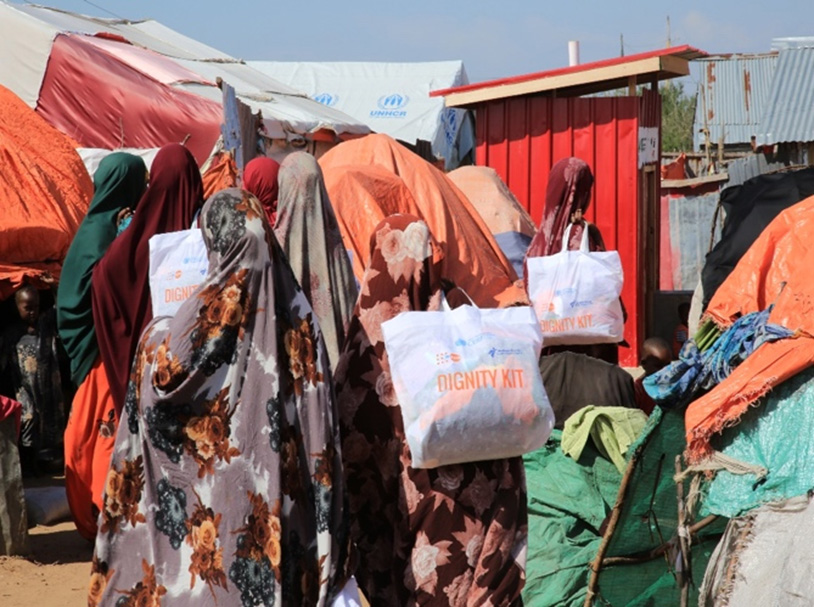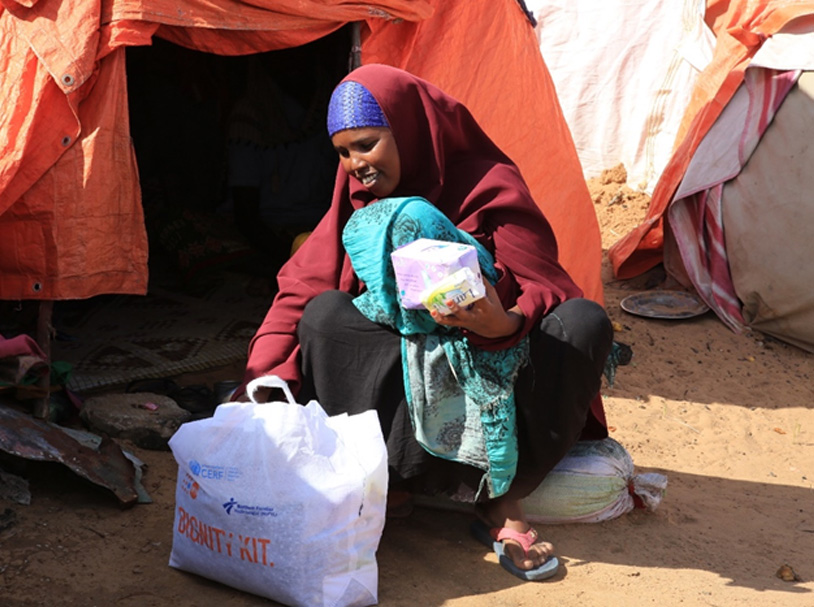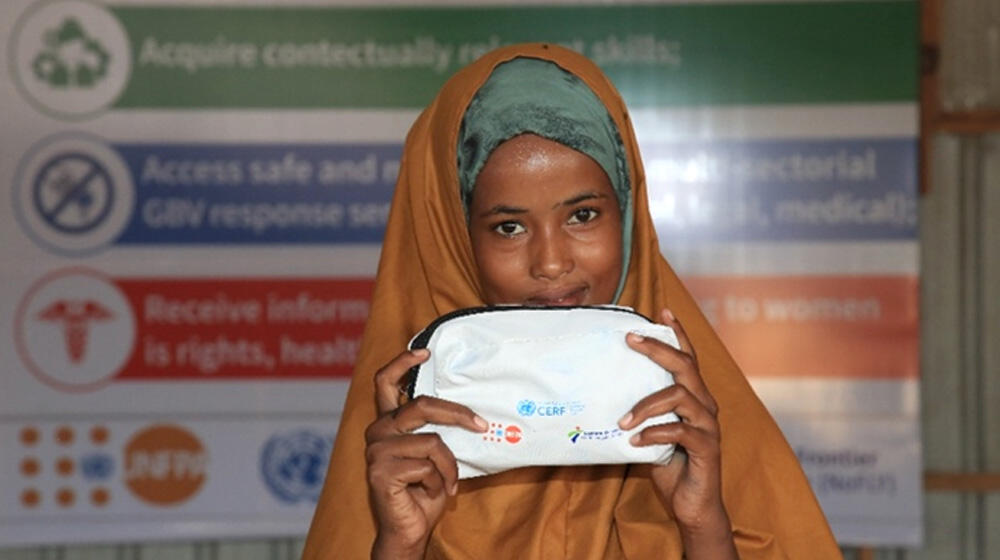The humanitarian crisis in Banadir's Deynille District is heartbreaking. Prolonged drought has forced thousands of families to flee their homes in search of safety and basic necessities. The influx of internally displaced persons (IDPs) has resulted in a surge of gender-based violence (GBV), which has had a devastating impact on women and girls in the area.
Thankfully, the GBV CERF supported project being implemented by UNFPA, has provided a glimmer of hope for those affected by the crisis. The project has established women and girls' safe spaces and GBV one-stop centers, which have provided a secure and confidential environment for women and girls to seek help and support. These spaces have been essential in providing medical care, counseling, legal aid, and referrals to other services for those affected by GBV.
The project has also provided dignity kits to GBV survivors and women and girls affected by drought. These kits have included clothing, dates (Timir), and hygiene products, which have helped to restore the dignity of beneficiaries and improve their quality of life.
The project has also distributed menstrual hygiene kits to those who need it, especially GBV survivors and school-going girls which has enabled girls to attend school regularly and not miss out on their education. The kits include reusable sanitary pads, soap, and underwear, which are essential for maintaining hygiene and dignity during menstruation.
The success stories of those who have benefited from the project, like Halima and Halimo, are heartwarming. Halima, who had been forced to miss school each month due to her inability to afford sanitary products, was provided with a menstrual hygiene kit through the project. As a young girl living in the Alle Suge IDP camp, she faced the harsh reality of poverty and marginalization every month when her period arrived. Without the necessary sanitary products, she was forced to miss school and her dreams of a better life seemed unattainable. However, she felt her life was “transformed” when she received a menstrual hygiene kit through the GBV CERF supported project by UNFPA.

With tears of gratitude, Halima shared how this simple kit had made all the difference. She no longer missed school or felt ashamed of herself, and could focus on her studies, knowing that she had the necessary materials to take care of herself. This kit was not just a practical item for Halima, but a symbol of hope - a chance to break free from the cycle of poverty and marginalization. The power of small acts of kindness can change lives in ways that we can never imagine.
Halimo Salax Osman struggled to survive with her family during the severe drought in Qoryoley, Somalia. When they ran out of water and food, they were forced to flee to the Alla Suge IDP camp in Mogadishu, she came in with nothing except the clothes they were wearing. As her period arrived, she was rendered immobile and hidden in her shack. She struggled to maintain hygiene, and was helpless and ashamed. When Halimo received a dignity kit from UNFPA supported from WGSS, which contained everything she needed to take care of her personal hygiene and dignity, it gave her a renewed sense of confidence and self-respect, empowering her to take care of herself and her family.
"It helped me feel more like myself again," Halimo said, her voice trembling with emotion. "It gave me the necessary items to take care of my personal hygiene and dignity. I am grateful for the project, and it has made my life a little bit easier."

The impact of the project has been significant, with over 6,200 people reached through the established women and girls' safe spaces and the GBV one-stop centers. Menstrual hygiene kits have been provided to 1,000 GBV survivors and school-going girls, while dignity kits have been distributed to 1,209 GBV women and girls who were drought-affected new arrivals GBV survivors and those at risk of GBV.
The GBV CERF project has provided essential services and materials to those affected by the humanitarian crisis in Banadir's Deynille District. The kindness and generosity of UNFPA and CERF have given hope to those who have been struggling to make ends meet. Although the crisis is far from over, the success stories of those who have benefited from the project serve as a reminder that small acts of kindness can change lives in ways that we can never imagine.


